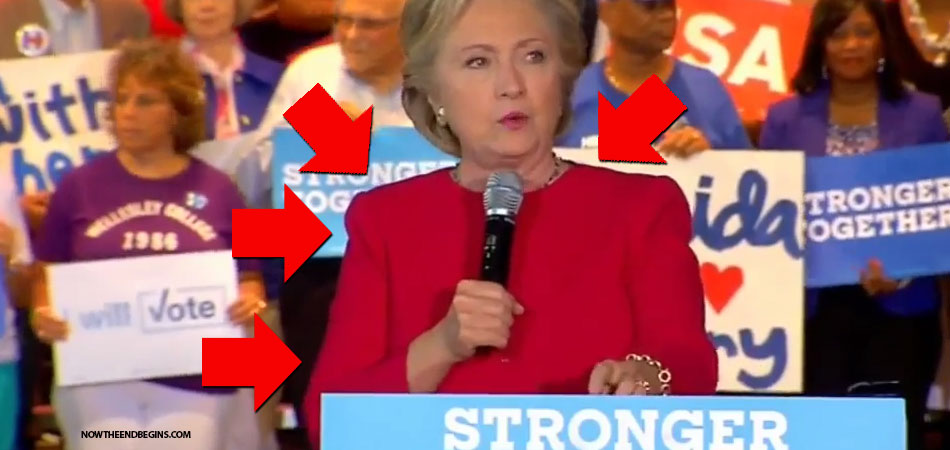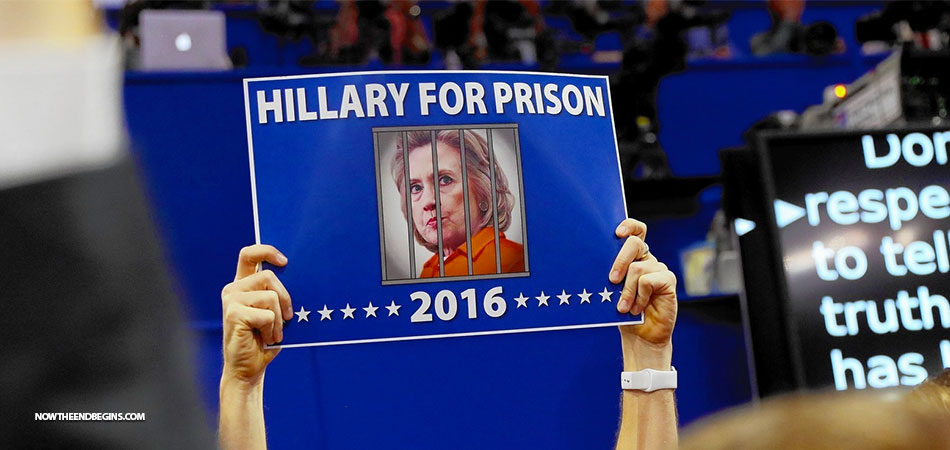Gas Prices
$6-A-Gallon Gas Hits Florida
According to GasBuddy.com, motorists are shelling out $5.89 for a gallon of regular gas at a Shell station in Lake Buena Vista, topping out at $5.99 a gallon for premium. It doesn’t get better at a Suncoast Energy station in Orlando, where drivers are paying $5.79 for a gallon of regular.

TAMPA (CBS Tampa) — Talk about pain at the pump! Some Florida drivers are spending nearly $6 a gallon to fill up their gas tanks.

A gas pump displays a sale of $58.74 at a gas station in Miami Beach, Fla. (credit: Joe Raedle/Getty Images)
According to GasBuddy.com, motorists are shelling out $5.89 for a gallon of regular gas at a Shell station in Lake Buena Vista, topping out at $5.99 a gallon for premium. It doesn’t get better at a Suncoast Energy station in Orlando, where drivers are paying $5.79 for a gallon of regular.
“Prices over in the Disney World area are much higher than any other place in Florida,” Jessica Brady, AAA spokeswoman, told CBS Tampa, adding that people regularly complain about gas prices in that area.
The Sunshine State is opening up its wallet, paying an average of $3.67 a gallon of unleaded gas, 12 cents more than the national average. And it’s only expected to go up.
“It doesn’t look like we will have relief at the pump anytime soon,” Brady told CBS Tampa. “I do think we will see prices surpass $4 a gallon. I think we will see that closer to spring time.” source – CBS Tampa

Climate Change
WARMING TREND: Yellow Vest Riots In Paris Over High Fuel Prices Now Sparking Global Backlash Against Climate Change Taxes
The yellow vest protests against higher fuel prices as a result of a Climate Change carbon tax in France are not only not over, they are spreading out now.

The single most effective weapon in the fight against climate change is the tax code – imposing costs on those who emit greenhouse gases, economists say. But as French President Emmanuel Macron learned over the past three weeks, implementing such taxes can be politically explosive.
Support for Climate Change is a funny thing. On one hand, it is easy to rouse the masses with passionate speeches about solving man-made climate change. Everyone loves the cleverly designed Powerpoint presentations and compelling infographics, and it’s fun to share them on social media. But then when you try to make those same masses reach into their working class pockets and actually pay the ‘climate tax’, you get another reaction entirely. In France, you got 7 days of bloody riots in the streets that threatened to pull the entire nation to the ground.
The riots now being waged – they are not over – by the Yellow Vest protestors is quite similar to the reason why President Trump pulled America out of the phony Paris Climate Accords. It’s a scam, and everyone knows it, but very few are willing to stick their necks out and stand against it. President Trump did, and now the working class people of France are standing against it as well.
France’s protesters are part of a global backlash against climate change taxes
FROM SF GATE: On Tuesday, France delayed for six months a plan to raise already steep taxes on diesel fuel by 24 cents a gallon and gasoline by about 12 cents a gallon. Macron argued that the taxes were needed to curb climate change by weaning motorists off petroleum products, but violent demonstrations in the streets of Paris and other French cities forced him to backtrack – at least for now.
“No tax is worth putting in danger the unity of the nation,” said Prime Minister Édouard Philippe, who was trotted out to announce the concession. It was a setback for the French president, who has been trying to carry the torch of climate action in the wake of the Paris accords of December 2015. “When we talk about the actions of the nation in response to the challenges of climate change, we have to say that we have done little,” he said last week.
Macron is hardly alone in his frustration. Leaders in the United States, Canada, Australia and elsewhere have found their carbon pricing efforts running into fierce opposition. But the French reversal was particularly disheartening for climate-policy experts, because it came just as delegates from around the world were gathering in Katowice, Poland, for a major conference designed to advance climate measures.
“Like everywhere else, the question in France is how to find a way of combining ecology and equality,” said Bruno Cautrès, a researcher at the Paris Institute of Political Studies. “Citizens mostly see punitive public policies when it comes to the environment: taxes, more taxes and more taxes after that. No one has the solution, and we can only see the disaster that’s just occurred in France on this question.”
“Higher taxes on energy have always been a hard sell, politically,” said Gregory Mankiw, an economics professor at Harvard University and advocate of carbon taxes. “The members of the American Economic Association are convinced of their virtue. But the median citizen is not.”
In the United States – where energy-related taxes are among the lowest in the developed world – politicians, their constituents and their donors have repeatedly made that clear.
President Bill Clinton proposed a tax on the heat content of fuels as part of his first budget in 1993. Known as the BTU tax, for British thermal unit, it would have raised $70 billion over five years while increasing gasoline prices no more than 7.5 cents a gallon.
But Clinton was forced to retreat in the face of a rebellion in his own party. “I’m not going to vote for a BTU tax in committee or on the floor, ever, anywhere. Period. Exclamation point,” said then-Sen. David Boren, D-Okla.
The state of Washington has also tried – and failed twice – to win support for a carbon tax or carbon “fee.” In 2016, the state’s voters rejected a ballot initiative that would have balanced a carbon tax with other tax cuts. In 2018, a wider coalition sought backing for an initiative that would have poured fee revenue into clean energy projects, job retraining and early retirement plans for affected workers. The fee would have started at $15 a ton and gone up $2 a ton for 10 years. It, too, failed.
To be sure, some climate-conscious countries have adopted carbon taxes, including Chile, Spain, Ukraine, Ireland and nations in Scandinavia. Others have adopted cap-and-trade programs that effectively put prices on carbon emissions.
Only around 12 percent of global emissions are covered by pricing programs such as taxes on the carbon content of fossil fuels or permit trading programs that put a price on emissions, according to the International Monetary Fund.
Policy experts say that to some extent the prospects of carbon taxes may depend on what happens to the money raised. Using the revenue for deficit reduction, as was planned in France, is a no-no.
“Even in the best of times, carbon taxes must be carefully crafted to avoid political pitfalls,” said Paul Bledsoe, a former Senate Finance Committee staffer and Clinton White House climate adviser. “In particular, much of the revenue raised must be recycled back to middle-income workers. Macron’s approach put the money toward deficit reduction, stoking already simmering class grievances.” READ MORE
Now The End Begins is your front line defense against the rising tide of darkness in the last days before the Rapture of the Church
HOW TO DONATE: Click here to view our GoFundMe page
When you contribute to this fundraising effort, you are helping us to do what the Lord called us to do. The money you send in goes primarily to the building of the recording studio, but it also goes to the overall daily operations of this site. When people ask for Bibles, we send them out at no charge. When people write in and say how much they would like gospel tracts but cannot afford them, we send them a box at no cost to them for either the tracts or the shipping, no matter where they are in the world. Even all the way to South Africa. We even restarted our weekly radio Bible study on Sunday nights again, thanks to your generous donations.
But whatever you do, don’t do nothing. Time is short and we need your help right now. If every one of the 12,621 people on our daily mailing list gave $4.50, we would reach our goal immediately. If every one of our 151,781 followers on Facebook gave $1.00 each, we would reach 300% of our goal. The same goes for our 13,600 followers on Twitter. But sadly, many will not give, so we need the ones who can and who will give to be generous. As generous as possible.
“Looking for that blessed hope, and the glorious appearing of the great God and our Saviour Jesus Christ;” Titus 2:13 (KJV)
“Thank you very much!” – Geoffrey, editor-in-chief, NTEB
HOW TO DONATE: Click here to view our GoFundMe page
Gas Prices
Nationwide Gas Prices Expected To Remain Low Throughout 2015
More than 120 straight days at the pump, the numbers kept going down. Drivers rejoiced. “I’m loving it. I can get my tank filled and it’s fabulous,” said Becky Reber, driver.

For more than 120 straight days at the pump, the numbers have been going down
BALTIMORE (WJZ) — All good things must come to an end. Experts say the steady drop in gas prices across the country is one of those things. But Gigi Barnett explains, Maryland’s gas prices are still trending down.
More than 120 straight days at the pump, the numbers kept going down. Drivers rejoiced. “I’m loving it. I can get my tank filled and it’s fabulous,” said Becky Reber, driver.

While the national average for a gallon of regular should hit $2.00 this week, prices in some parts of the country made a slight uptick. Maryland is still going strong on the downward trend.
“We don’t expect the statewide average to continue to decline,” said Ragina Cooper Averella, AAA Mid Atlantic spokesperson. But could the state see a return to $3.00 for a gallon of regular? AAA Mid Atlantic says not likely.
“Moving into the rest of 2015, we expect the average will remain below $3.00 a gallon,” Averella said. Economists say the low gas trend puts more cash in drivers’ pockets and more time on the road.
Low prices at the pump are also affecting Maryland’s massive transportation budget. The agency that runs the state’s buses and rail systems saved at least 10 percent on fuel between July and December last year.
The State Highway Administration says it saved 12 percent on gas in the last six months. The money saved will be funneled back in to its budget. source – CBS Baltimore
Energy
Sudden And Dramatic Decline In Oil Prices Spells Disaster For OPEC
This new energy paradigm may result in oil trading at much lower levels than the $100 (£64) per barrel that consumers have grown used to paying over the last decade and reshape the entire global economy.

Sun sets on OPEC dominance in new era of lower oil prices
On our way home from church tonight, we stopped at the local gas station to fill up. Pleasant surprise greeted me as I saw again that the price per gallon had dropped several cents since the last time I filled up. Here is Florida, gas is around $2.71, and dropping steadily. Thats a drop of over .50 per gallon in just the last month. The reason for this is because other countries, like the United States, Russia and Israel, have recently begun to harvest massive amounts of oil and natural gas thus breaking the monopoly held by the Arab nations for so long. Don’t expect the Arabs to sit idly by and watch their fortunes vanish, however. Money and greed brings out the worst in people and in countries, and that can only mean one thing. Another war.
From Telegraph UK: It wouldn’t be the first time that a meeting of the Organisation of Petroleum Exporting Countries (OPEC) has taken place in an atmosphere of deep division, bordering on outright hatred. In 1976, Saudi Arabia’s former oil minister Ahmed Zaki Yamani stormed out of the OPEC gathering early when other members of the cartel wouldn’t agree to the wishes of his new master, King Khaled.
The 166th meeting of the group in Vienna next week is looking like it could end in a similarly acrimonious fashion with Saudi Arabia and several other members at loggerheads over what to do about falling oil prices.
This new energy paradigm may result in oil trading at much lower levels than the $100 (£64) per barrel that consumers have grown used to paying over the last decade and reshape the entire global economy.
It could also trigger the eventual break-up of OPEC, the group of mainly Middle East producers, which due to its control of 60pc of the world’s petroleum reserves has often been accused of acting like a cartel.
Read the rest of the story on Telegraph UK…
-

 George Soros8 years ago
George Soros8 years agoProof Of George Soros Nazi Past Finally Comes To Light With Discovery Of Forgotten Interview
-

 Election 20168 years ago
Election 20168 years agoDEAD POOL DIVA: Huma Abedin Kept Those Hillary Emails That The FBI Found In A Folder Marked ‘Life Insurance’
-

 Election 20168 years ago
Election 20168 years agoCrooked Hillary Campaign Used A Green Screen At Today’s Low Turnout Rally In Coconut Creek FL
-

 George Soros8 years ago
George Soros8 years agoSORE LOSER: George Soros Declares War On America As Violent MoveOn.Org Protests Fill The Streets
-

 Donald Trump8 years ago
Donald Trump8 years agoDonald Trump Will Be 70 Years, 7 Months And 7 Days Old On First Full Day In Office As President
-

 Headline News8 years ago
Headline News8 years agoIf Hillary Is Not Guilty, Then Why Are Her Supporters Asking Obama To Pardon Her? Hmm…
-

 Election 20168 years ago
Election 20168 years agoWikiLeaks Shows George Soros Controlling Vote With 16 States Using SmartMatic Voting Machines
-

 End Times8 years ago
End Times8 years agoFalse Teacher Beth Moore Endorses The Late Term Partial-Birth Abortion Candidate Crooked Hillary










































































